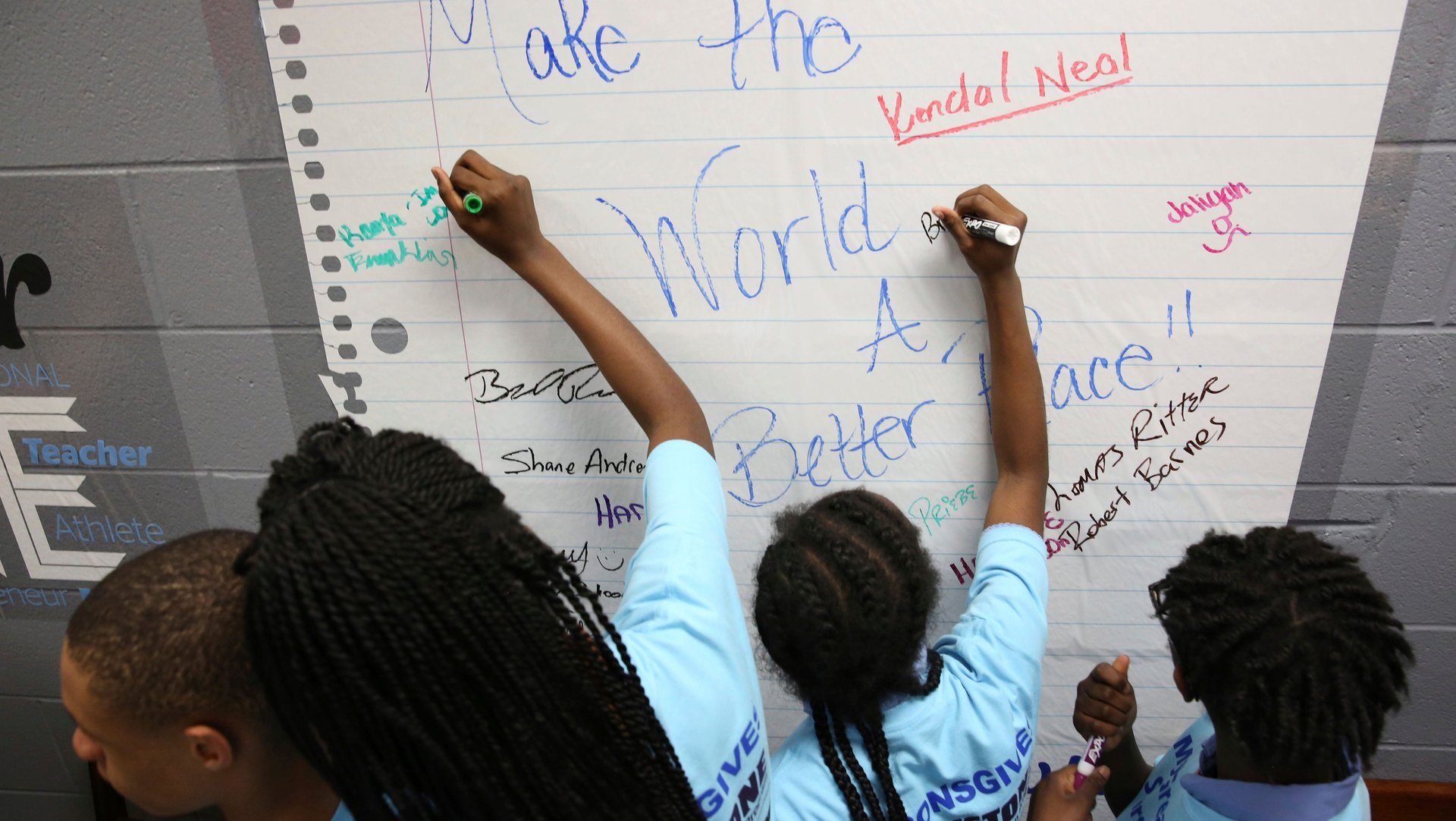Many of today’s teenagers will be 2020 voters. This is what they care about
If the 2018 US midterm elections are any indicator, a bigger share of teenagers will show up to the polls in 2020 than in the past.


If the 2018 US midterm elections are any indicator, a bigger share of teenagers will show up to the polls in 2020 than in the past.
Politicians looking for their votes would do well to look at a recent Pew Research Center poll that asked American teens about their goals, priorities and struggles. Not all of respondents will be voting age by 2020, but their answers provide a list of issues the many presidential hopefuls should be paying attention to.
Fulfilling jobs, not paychecks
Pew surveyed teenagers between 13 and 17 years old in the fall of last year. It found only 18% of those interviewed think making a lot of money is extremely important. About a third of them considers it very important, but the relative majority (39%) think it’s just somewhat important. The remaining 10% think it’s not important at all.
For most teenagers, work seems to be more about fulfillment than money. A striking 63% says it’s extremely important to have a career that they enjoy, with another 32% considering it very important. Only about 5% of the teens care somewhat, or not at all, whether their job makes them happy.
While the promise of “good American jobs” may have worked with previous generations, politicians catering to teenagers will have to offer policies that promote fulfilling work, particularly as the specter of automation looms.
Childcare, childcare, childcare
The bad news, from the perspective of population growth, is that only 16% of teenagers think having kids is extremely important. The good news is that it’s still somewhat, or very important for most of them. Overall, 70% of the survey’s respondents would like to have kids.
And since most of them (59%) worry to some extent that their family might not have enough money for basic expenses, the exorbitant cost of childcare is likely to be a big issue for them. That means they probably will appreciate candidates who are proposing ways to make raising a family more affordable.
Safety net
The survey dispels some prejudices about teenagers. Do they all want to become famous? Not so much. More than 70% of them think it’s not too important, or not at all important, to be famous. Are they all self-obsessed? Wrong, too: 99% of them think it’s important—between somewhat to extremely important—to help others. In fact, a remarkable 32% thinks it’s extremely important.
This is a significant shift from baby boomers, the most selfish generation. Their more generous grandchildren may prefer political plans with stronger safety nets over deeply individualistic policies, such as tax cuts and the lack of universal healthcare.
Student debt
The vast majority of teenagers plan to go to college. Nearly 60% are counting on four-year college, and 12% are thinking of two-year, instead. But 64% are worried some or a lot about not being able to afford it. Given how soon survey respondents are bound to enroll, candidates with a plan for free college or reduced student debt are sure to have an appeal.
Mental health
Love, sex, parents: One would expect these to be the top concerns for teenagers. They are not. Most teens seem to be getting along with their parents just fine—60% gets hugs and kisses from them almost every day, 30% almost never get into an argument with them, and 77% get some kind of help from them on their homework.
Sex isn’t too much of a concern, either, with 53% saying they don’t feel too much pressure to be sexually active. Meanwhile, 77% teens think it’s important to get married, suggesting they still believe in romantic love.
What concerns teens, instead, is something far darker. Anxiety and depression are by far their biggest worries, with 70% of the interviewed saying they consider them a major problem at their age. Only 4% say those issues are not a problem. Bullying (55%), drugs (51%) and alcohol consumption (45%) are also high up in teenagers’ list of concerns.
Considering the impact these issues already have among American adults, candidates hoping to lure in young voters should have effective plans for access to mental health care and addiction treatment.